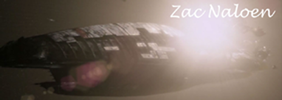Samuel wrote: If they can do jumps from within a planetary atmosphere, it makes me wonder why they have to go into space in the first place -- couldn't the "ship" just be a box with a drive that jumps planet to planet?
Maybe jumping into or from an atmosphere caused wear and tear on a ship? After all, it is moving into an area that is already occupied by matter.
Dunno. I like having to go out to space to travel but any jump drive could just go from surface to surface if there's no explanation, just like the TARDIS. Even more problematic is the concept of multi-jumping in short succession. In earlier episodes it was assumed that a ship just couldn't turn around and jump quickly, the drives had to be spooled back up and so on. But later we have the example of the Galactica double-jumping with the whole atmosphere trick. So that makes you reevaluate older battles and wonder why we didn't see that. The real explanation is "the writers make it up as they go." That's the same reason why hybrid baby blood cures cancer only it doesn't, writers made that up as they went.
So it seems very odd to me that ships designed to poke around in one star system or one tightly-packed cluster will just happen to have the range to go tens of thousands of times beyond their original operational radius.
Maybe refueling times a long time and fuel has a low relative weight so that having large fuel tanks is an economic investment for transportation.
That's a bit of a reach and doesn't explain the consumables.
Not much was explained about how they were handling the food situation. There were some sops to it with the algae planet and other poorly specified ideas but few explained how they were keeping themselves in booze and ciggies for all that time.
Booze is easy. I'm not sure where you would grow tobacco though. Who brings tobacco leaves aboard a spaceship?
Especially in a future where cancer isn't cured yet.
If their telescopes are as good as ours, they should have been able to detect Kobol from any observation platform in the colonies. They would have seen the oxygen-rich atmosphere and someone would have wanted to go out there and see what it was all about.
Shit, that is a good point. And you have an entire system of people who believe it is out there and who want to find it... Maybe Kobol didn't have an oxygen atmosphere at the time the light that reaches the colonies was emited? Or is this a bit of a plot hole?
An atmosphere isn't something that changes that quickly -- well, it can go bad quickly if something bad enough happens but it takes a long time to recover. It looked like Kobol's not had much trouble for many, many years.
Now what would have been an interesting explanation for how they're able to survive out in space is if they made Galactica more than a carrier. In modern times, aircraft carriers serve as major support vessels for the battle group. Some nukers actually carried bunker fuel for the escorts. They also have extensive medical facilities, machine shops, and help keep the fleet at sea for prolonged periods of time. Now if we scaled this up to space, a battlestar could be a mobile starbase with the ability to mine the mcguffinite power mineral, manufacture all kinds of machinery, consumables, massive hydroponics for consumables. If the BSG battle groups did long voyages beyond routine resupply, that sort of thing would be completely necessary. And then that would explain how the rag-tag fleet would be kept going. Alternatively, if it seems too much to put all of that inside a ship meant for combat, you could hypothesize a fleet auxiliary ship that does this sort of thing. Maybe one of these megaships was supposed to be at the anchorage but had FTL problems and was stuck out in interstellar space. The Colonials realize it's out there and have to get there with the rag-tag fleet before the Cylons do. And once they save it, then you have the means of convincingly equipping the fleet for long-term survival.
Also, if you had a second wave of colonization heading out from the twelve main colonies, especially if you had FTL ships prospecting surrounding solar systems for the mcguffinite ore and had political dissidents, settlers and adventurers leaving the colonies and setting up shop in remote systems, now you've got more of a rationale for interstellar-capable ships and have some drama as the colonials are trying to get out there with a warning before the cylons, maybe add some more ships to the rag-tag fleet.
 Commander of the MFS Darwinian Selection Method (sexual)
Commander of the MFS Darwinian Selection Method (sexual)

